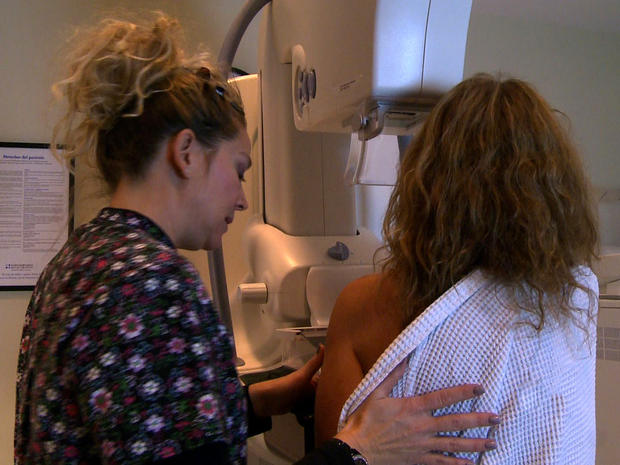Breast cancer blood test may predict disease's spread
(CBS News) A blood test that might be able to predict breast cancer's spread may improve diagnosis and treatment for women with early stage breast cancer, a new study finds.
Dr. Anthony Lucci, a professor of surgical oncology at the University of Texas, Anderson Cancer Center in Houston, and his colleagues looked at 302 patients with operable breast cancer. Their previous research identified so-called circulating tumor cells in the blood of patients who had metastatic breast cancer, or breast cancer that has spread. The cells are shed by tumors and are thought to cause cancer if they latch on to another area in the body.
Weight loss lowers breast cancer risk: Study
More advanced "smart bomb" cancer treatments targeting disease, leaving healthy cells alone
25 breast cancer myths busted
For this study, published in the June 5 issue of Lancet Oncology, the researchers wanted to know if these circulating cells could be found in patients at an earlier stage of the disease and whether or not the presence of cells could predict disease progression.
After examining the patients with a blood test, the researchers identified circulating tumor cells in 24 percent of the study group. Further analysis revealed the presence of the cells predicted disease progression and the patient's overall survival rate. Fifteen percent of patients who tested positive for the cells had relapsing breast cancer, while 10 percent died during the four-year-study period. That compares to 3 percent of patients who didn't test for the cells that relapsed and 2 percent that died during the study.
"If they have them they had roughly four times the risk of either (the cancer) recurring or dying than those who don't have the cells," Lucci told WebMD.
For patients with a higher concentration of circulating tumor cells found in the blood - with three of the cells present - 31 percent of them died or relapsed during the study.
WebMD reports that the study might explain why about 25 percent of breast cancer patients who catch their cancer early with surgery will see it return.
Experts commenting on the study said the blood test may one day help personalize treatment for breast cancer patients.
"We are moving into a state where we're looking at a person's individual tumor and this is another way to do that, potentially leading to treatment," Dr. Stephanie Bernik, chief of surgical oncology at Lenox Hill Hospital in New York City, told HealthDay.
In an accompanying editorial in the same journal, Dr. Justin Stebbing, a professor of cancer medicine and oncology, at Imperial College, London, U.K., welcomed the findings, but cautioned more research is needed to determine how it could help patients.
Stebbing wrote, "At present we are in a difficult situation where we have a reliable prognostic biomarker but restricted guidance on how this information should be used, and therefore, until the completion of further studies, we do not envisage patients being treated differently on the basis of these data."

